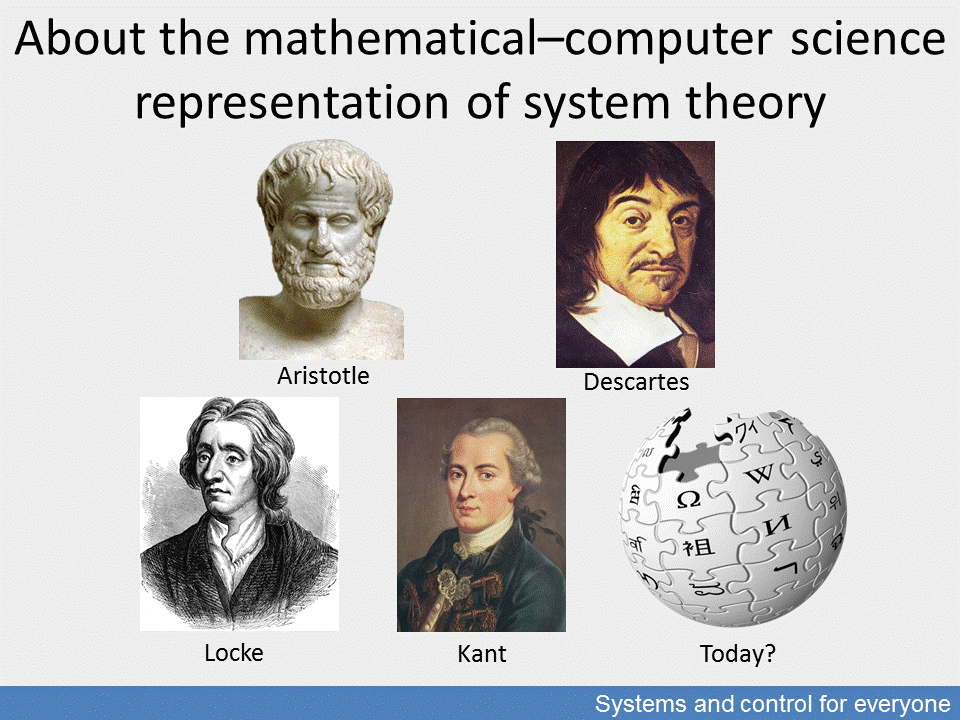

Mathematical–computer science representation of system theory
In our interpretation the significance of systems theory has three aspects:
1./ a philosophical aspect: how we think about systems as our world view, as the structure of our approaches;
2./ a physical aspect: the current world of relations of scientific knowledge; and
3./ the science and practice of computer technology tools which enable a forward-looking and creative intervention in the world created by modern society and technology, as well as the observation and operation of this world. The key to applying computer technology methods this way is mathematics.
The present work is essentially about this third aspect and aims at providing a brief introduction to it. Note that the algebraic concepts summarised here are common knowledge for an undergraduate mathematics student but not necessarily for a systems and control theory student and are not necessarily included in the syllabus of their training program. The approach and concepts of algebraic generalisations are more and more important in handling problems generated by the rapidly developing and increasingly complicated real and IT systems. This approach has permeated the problem handling methods of the past decades and has evolved to a unique new discipline.
In these systems thinking is also a product of evolution, therefore the following outlines are necessarily non-exhaustive and incomplete.
Since the beginning of thought, man has shown great concern about certain basic phenomena and our knowledge and sciences have evolved from the abstract examples of such phenomena.
One concerns the relation system between permanence and change, the two- and three-dimensional space thereof, and time as an indicator of change. Another (related) phenomenon concerns the experience-relations of the past, the present and the future. A third one concerns the matter of counting.
Modern systems theory uses the generalisations drawn from these foundations as building blocks to develop abstract models which enable the approximation of the broadest scope of phenomena by means of calculations. The following pages will refer to this evolutionary process, supporting the natural course of abstract thinking and helping to understand the roots of creating novelties. When discussing the achievements of abstract thinking, we will often refer to the practical concepts of modern life and technology, using these metaphorical connections to highlight how previously unusual relations become self-evident in the course of time. At the same time, we will direct attention to the limitations of human thinking which can only comprehend even the most ordinary facts in the framework of this evolution. This consideration is also a reference to the (so far rather agnostic) debate on the opportunities and differences of natural and artificial intelligence.